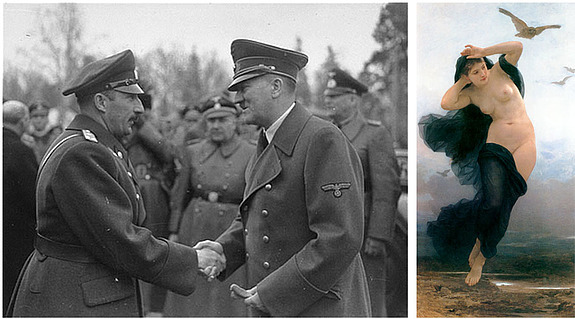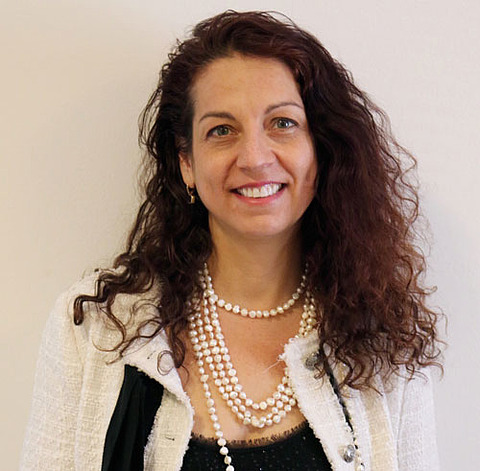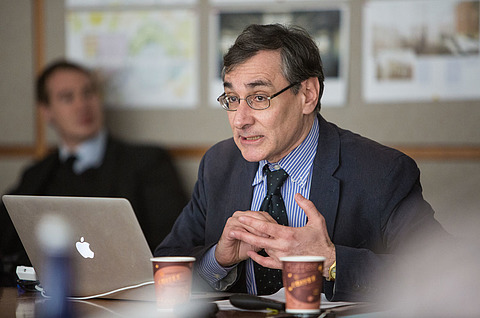Diverse Topics Explored in Two Public Lectures
Press Contact

On Friday, October 14, the Institute for Advanced Study will host a pair of public lectures—one on the history of night in the Greek world and the other on memory projects about World War II and the Cold War. Kristen Ghodsee, Professor and Director of Gender, Sexuality, and Women’s Studies at Bowdoin College, will explore “The Left Side of History: World War II and Re-emergent Nationalisms in Contemporary Eastern Europe,” and Angelos Chaniotis, Professor in the School of Historical Studies, will discuss “Nessun Dorma: From Night Stories to a History of the Night in the Greek World.” and The lectures will begin at 5:00 p.m. in Wolfensohn Hall on the Institute campus, and are sponsored by the Association of Members of the Institute for Advanced Study (AMIAS).
In the first lecture, Ghodsee will investigate the contemporary European memory projects about World War II and the Cold War. Since the global financial crisis in 2008, countries once locked behind the Iron Curtain have increasingly drifted to the far right, vilifying their state socialist pasts to exonerate nationalist heroes once condemned for their collaboration with Nazi Germany. Politicians and scholars strategically deploy historical knowledge as a tool to quash growing domestic opposition to the economic upheavals and insecurities of the post-socialist era. Using the individual tales of Frank Thompson, a British Special Operations Executive Officer who parachuted into Axis-occupied Yugoslavia in January 1944, and Elena Lagadinova, the youngest female partisan fighting in Bulgaria during the Second World War, Ghodsee will ethnographically explore the experience, perception and remembrance of 20th century communism and the widespread disillusionment with the dreams of democracy and free markets after 1989.

Ghodsee, former Member (2006–07) in the School of Social Science and President of the Association of Members of the Institute for Advanced Study, earned her Ph.D. (2002) from the University of California, Berkeley. An American ethnographer, Ghodsee’s research focuses on the gendered effects of the economic transition from communism to capitalism and the ethnographic study of postcommunist nostalgia in Eastern Europe. In her current works, Ghodsee has experimented with ethnographic fiction, autoethnography and photoethnography to produce more intimate narratives and images of the disorienting impacts of the collapse of communism on daily life. She is the author of seven books and over two dozen articles, including Red Hangover: Legacies of 20th Century Communism, forthcoming with Duke University Press.
In the second talk, Chaniotis will discuss the night, whose definition as the period between sunset and sunrise is consistent and unalterable, regardless of culture and time. However, the perception of the night and its economic, social and cultural roles are subject to change. Which parameters determine these changes? What can we learn by studying them about the specific character of a culture? Why do people experience the night in different ways in different historical periods and how did this affect their lives? How do references to nocturnal activities in historical sources (works of art, narratives) reveal what the artists/authors wish to communicate to their audiences? Can the night be a meaningful subject of historical and archaeological enquiry?
Chaniotis will explore these questions through a study of source material in the Greek world (ca. 400 B.C.–ca. A.D. 400), which shows a continuous effort to colonize the night with activities of the day, to make the night safer, more productive, rational and efficient. He will demonstrate that the main motors for this change were social developments and religion, not technology and pose the question: Do we have nightlife because of technology? Or do we create technology in order to have nightlife?

Chaniotis, who received both his Habilitation (1992) and Ph.D. (1984) from the University of Heidelberg, is engaged in wide-ranging research in the social, cultural, religious, legal, and economic history of the Hellenistic world and the Roman East. The author of many books and articles and senior editor of the Supplementum Epigraphicum Graecum, he has worked on war, religion, communicative aspects of rituals, and strategies of persuasion in the ancient world. His current research focuses on emotions, memory, and identity. Significant questions and dialogues in the field have grown out of his contributions, which have helped to advance understanding of previously unexplored aspects of the ancient world.
This event is free and open to the public, but registration is required. To register for this lecture visit www.ias.edu/events/amias-lectures-fall16. For more information on other events at the Institute, visit the Events page.